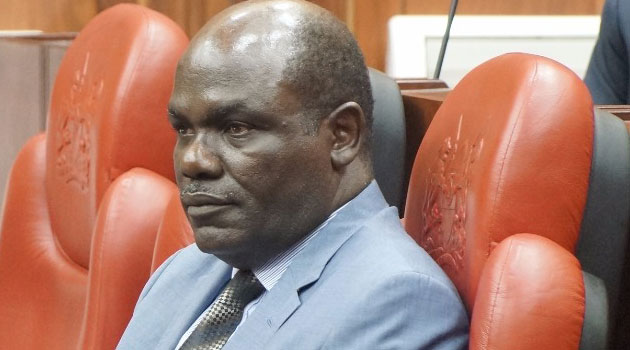
Internal wrangles that plagued the Independent Electoral and Boundaries Commission (IEBC) at the height of preparations for last month’s fresh presidential election are expected to take center stage when the hearing of petitions challenging President Uhuru Kenyatta’s re-election commence.
Activist Njonjo Mue’s supporting affidavit to a petition he
jointly filed with Muslims for Human Rights Chairperson Khelef Khalifa, avers
that a leaked memorandum authored by IEBC Chairperson Wafula Chebukati which
was addressed to commission CEO Ezra Chiloba, raised critical issues which
could have impeded the agency’s ability to organise a proper election.
According to Mue, the September 5 dated memo which came four
days after the Supreme Court nullified the August 8 presidential election was,
in fact, an acknowledgment of indictment by the apex court which found in a
majority decision on September 1 that illegalities and irregularities had been
committed in the conduct of the invalidated election.
Mue argues that the memo which raised twelve issues
including the creation of a username and password under the Chebukati’s name
without his consent were not conclusively addressed before the Commission
conducted a fresh presidential election on October 26.
The co-petitioner contends that the commission’s failure to
publish Chiloba’s response to Chebukati’s memo despite assurances that queries
raised had been addressed meant that IEBC had failed to build public confidence
ahead of the fresh presidential poll.
In his affidavit, Mue highlights a statement dated September
7 in which IEBC Vice Chairperson Consolata Nkatha alongside four other
commissioners disowned Chebukati’s damning memo to Chiloba saying matters
raised in the document had not be deliberated upon in the plenary.
Nkatha’s statement went ahead to state that the questions
raised by Chebukati were not sanctioned by the Commission.
“We wish to clarify that the contents of the said memo were
not discussed and sanctioned by the Commission Plenary. The Commissioners came
to know of the memo through the media like everyone else,” Nkatha, alongside
commissioners Yakub Guliye, Paul Kurgat, Boya Molu and Margret Mwachanya said
in the statement.
“A quick perusal of the memo shows that the allegations are
based on some report or information that has not been brought to the attention
of the Commission. Most of the issues raised are not factual and could easily
mislead if taken out of context,” the five commissioners pointed out.
The Commission subsequently, following the fallout between
the Chebukati-led faction (comprising of himself and ex-Commissioner Roselyn
Akombe) and the Nkatha-led group, retreated to Naivasha on September 10 to iron
out differences.
In a statement on September 11, Chebukati, his fellow commissioners
and the embattled poll agency’s Chief Executive assured that Chiloba had
clarified on all issues raised in the damning memo.
Chebukati said the Chiloba-led secretariat would issue a
written response addressing each of the twelve issues he had raised in his
memo.
“We are coming out as one team with a common vision that
will enable us to deliver on our mandate,” he stated at the time.
“It (the retreat) helped to clarify issues of concern and we
are now better off than when we came here,” Chebukati reiterated.
He further assured: “We resolved to review the responses by
the Secretariat and communicate the same to the public at an appropriate time.”
Despite these assurances, Mue asserts in his affidavit that
the commission was not ready to conduct the fresh presidential election in
accordance with the law.
“The resignation of Commissioner Akombe was occasioned by
serious issues she raised that apparently indicated the imminent risk that the
scheduled fresh presidential election would not satisfy the legal and
constitutional standard of conducting an election,” the 78-point affidavit
reads in part.
Mue also claims that Chebukati admitted to the Commission’s
unpreparedness at a press conference dated October 18 which came on the
backdrop of Commissioner Akombe’s resignation on October 17.
However, whereas he pointed out concerns of politically
motivated opinions during plenary sessions, Chebukati maintained – during the
cited press conference – that the Commission will move on with the election as
scheduled.
“As a lawyer, I cannot continue to be pushed by majority
Commissioners to accept legal opinions that serve partisan interests and are
not grounded in the Constitution or the law. In the least, this is intellectual
dishonesty for which my professional training demands that I abhor,” he warned.
He asked officials responsible for the mismanagement of the
annulled presidential election to step aside and pave way for a seven-member
project team he had appointed to oversee the fresh poll.
Other than Mue and Khalifa’s, the Supreme Court received two
other petitions; one by former Kilome MP, Harun Mwau, and the other by
Institute for Democratic Governance.
Chief Justice David Maraga Wednesday published practicing
guidelines for parties involved in the three petitions.

